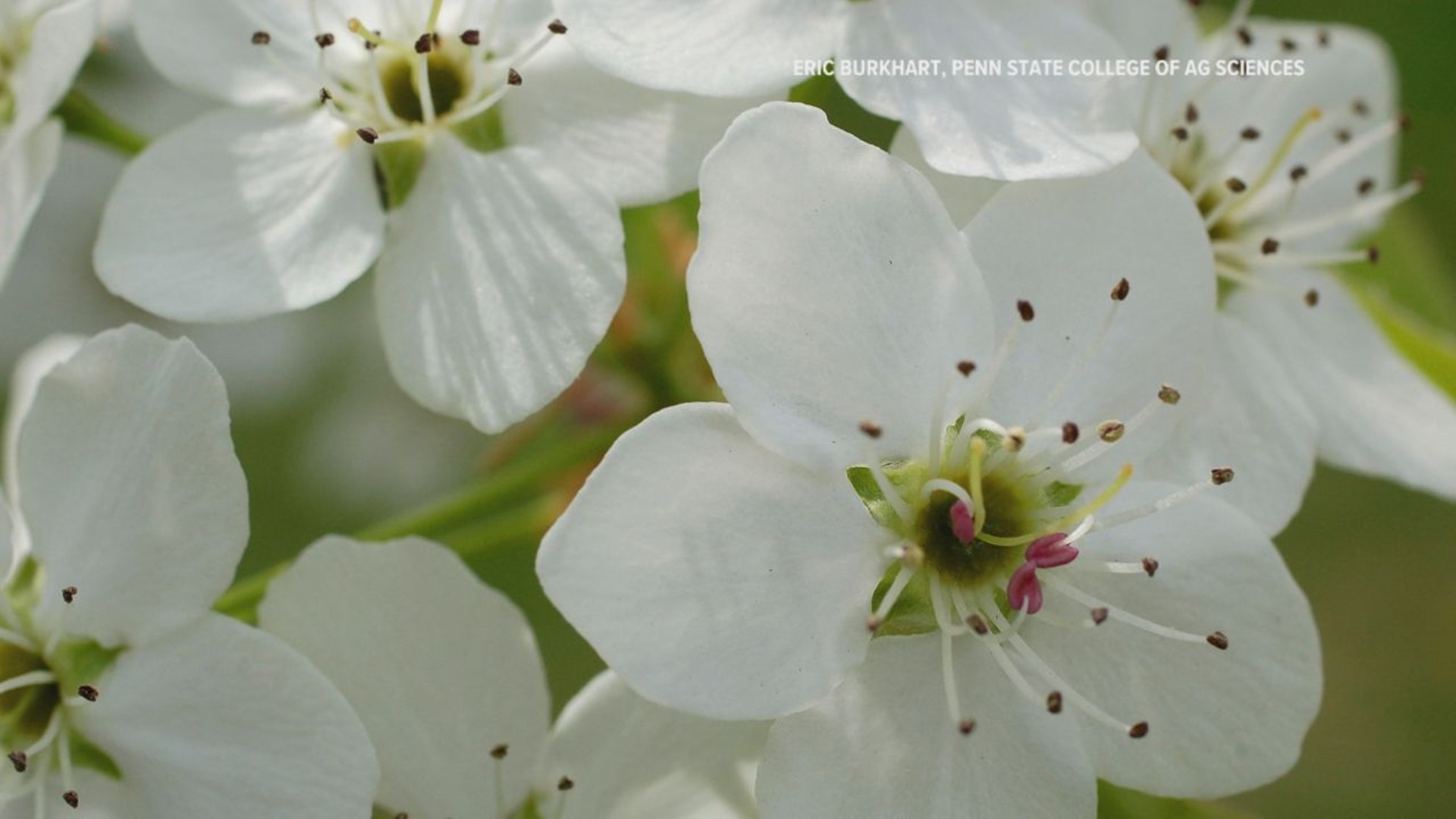LANCASTER, Pa. — The PA Department of Agriculture recently added the Callery pear, also known as the Bradford pear, to its list of noxious weeds.
The ban on the sale and cultivation of the popular tree officially goes into effect today.
The tree, native to Asia, became popular in the mid to late 20th century and is most commonly found lining streets and neighborhoods. While the tree does have pretty blossoms in the spring and nice foliage in the fall, the tree is causing more harm than good in Pennsylvania.
According to the PA Department of Agriculture, a noxious weed is “a plant that is determined to be injurious to public health, crops, livestock, agricultural land or other property”
Lois Miklas, Master Gardener from Penn State Extension, says a problem with Callery pears lies in the tree’s small, hard pears.
“Wildlife eats those and then spreads the seeds all over and they’re cropping up and they’re along the Appalachian Trail and things like that," Miklas tells FOX43. "They’re taking over natural areas.”
Other issues include the smell of the tree when it blooms, as well as how susceptible the tree is to wind damage.
“Callery pear trees have proved to be really really brittle," Miklas says. "Their branch unions are just really brittle and they’re short-lived and they tend to fall apart. So that’s another reason to really think about replacing them if you have them."
If you’re looking to add a new tree to your property, there are native alternatives that are good replacements. This includes a variety of redbuds that are white, serviceberries, and crabapple trees.
Enforcement of this ban on the sale and cultivation of Callery pear trees will be phased in over the next two years.

